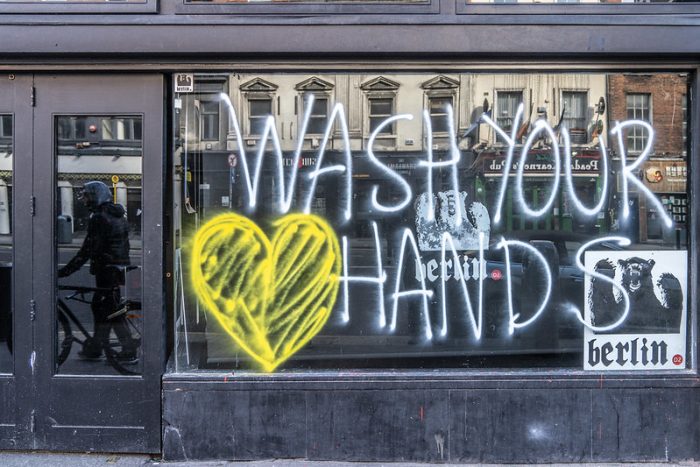Elephant’s Continually-updating Coronavirus Diary. ~ Waylon
~
I tilt my face toward the bright sun, taking a moment to feel the warmth on my skin.
I turn my gaze back toward the village. Cars line the streets, children play, and restaurants and bars are filled to capacity with laughing, smiling people enjoying a vacation of sorts—escaping the headlines of the city to our small slice of heaven in the country.
Large flat-screen TVs urge us to practice “social distancing,” but those pleas fall on deaf ears as rounds of food and drinks are ordered by unconcerned people.
They have no idea that the single mother about to serve their food wasn’t feeling well this morning, and pushed herself to work because she has two small kids to support and rent to pay. In fact, they have no idea whether anyone they’re in contact with is infectious.
“I’m not worried—it’s just like the flu,” they say.
A couple of miles up the road, an emergency meeting for EMS (Emergency Medical Services) concluded an hour ago. COVID-19 is already here. We review our procedure and check our gear. We are prepared, but I’m distressed by how rapidly events are unfolding.
Essential supplies such as masks, infectious disease suits, protective eyewear, and gloves—the things we need to care for people sick with the virus— are on short supply around the country. I worry about what will happen if the supply chain doesn’t improve.
Several miles away, the normally quiet entrance to the Emergency Room has been transformed into a terrifying image: bright red warning signs line the doors, while men in hazmat suits direct frightened patients to a quarantine area for testing.
This is definitely not the flu.
And at the same time, a doctor in Turin, Italy, shares his warnings about the pandemic in an interview:
“Get prepared as soon as soon as you can, because once you start admitting serious patients to the ICU, it’s probably too late for social distancing.”
We’ve never seen anything like this before. China and Italy had a head start, and we need to learn from their experiences and use what we’ve learned to our advantage.
But we’re squandering that opportunity.
What makes this virus so hard to control is how easily it is passed from person to person. We only need to share the same air in close proximity to become infected. Even worse, we can walk around for a few days, infected and contagious, before we experience any symptoms—we won’t find we have it until it’s too late to prevent the spread to others.
Our best defense is to practice social distancing and isolation.
Most of us know that if we’re infected, it’ll be similar to having the flu and we’ll recover. But this is not just about us: roughly 20 percent of patients—mainly the elderly and those with underlying health issues—will develop serious illness and need emergency care. We need to do everything we can to protect them.
Flatten the curve.
A large spike in the number of cases threatens the ability of the healthcare system to function effectively. There are only so many specialists, doctors, nurses, and ICU beds. A tremendous amount of people getting sick at once can overwhelm the system, and we won’t have the resources to care for everyone who needs it. Italy faced this situation, and their doctors were forced to choose which patients would receive care.
The numbers are scary.
As of Friday, March 13th, the Center for Disease Control had reported the number of positive COVID-19 patients at just over 1,600. Two days later, that number is approaching 4,000. That number is growing exponentially.
Some predict that up to 40 percent of our population of 330 million could become infected. That amounts to approximately 130 million infected patients. If we use a conservative mortality number of 1 percent (below current estimates of 3.7 percent), the number who die from COVID-19 could surpass a million people unless we change our current behavior.
We have one job to do—stay the f*ck home.
We don’t need to panic, but we do need to take this seriously and do everything we can to change the course of this outbreak. But the longer we continue our cavalier attitude about this pandemic, the more people will become seriously ill and die.
The single best thing we can do is stay at home as much as possible. We should work from home if we can, and avoid crowds as much as possible. It’ll be challenging for some of us with families and bills to pay—but we’ve got to do the best we can.
If we have to leave our homes, frequent hand washing and social distancing are most important—stay at least six feet away from others and avoid gathering in closed spaces as much as possible. It’s a significant change in behavior, but a necessary one if we are to protect our population.
Let’s take advantage of social media. It’s easier than ever to stay connected from home, and there are wonderful ways people are doing that such as FaceTime and participating in virtual communities.
We’re all in this together—we have to be mindful of our choices, as they have the potential to put many people at risk.
Times of crisis can bring out the best in us. If we work together, our resilience, solidarity, and strength of character will shine and help us through this ordeal.
I zip up my suit and put on my mask, about to enter another home where COVID-19 lives. As I go to help someone who’s having trouble breathing, I fear this is only the beginning.
This is not the flu—and it’s here, I tell them. But no one is listening.
~
~









Read 16 comments and reply